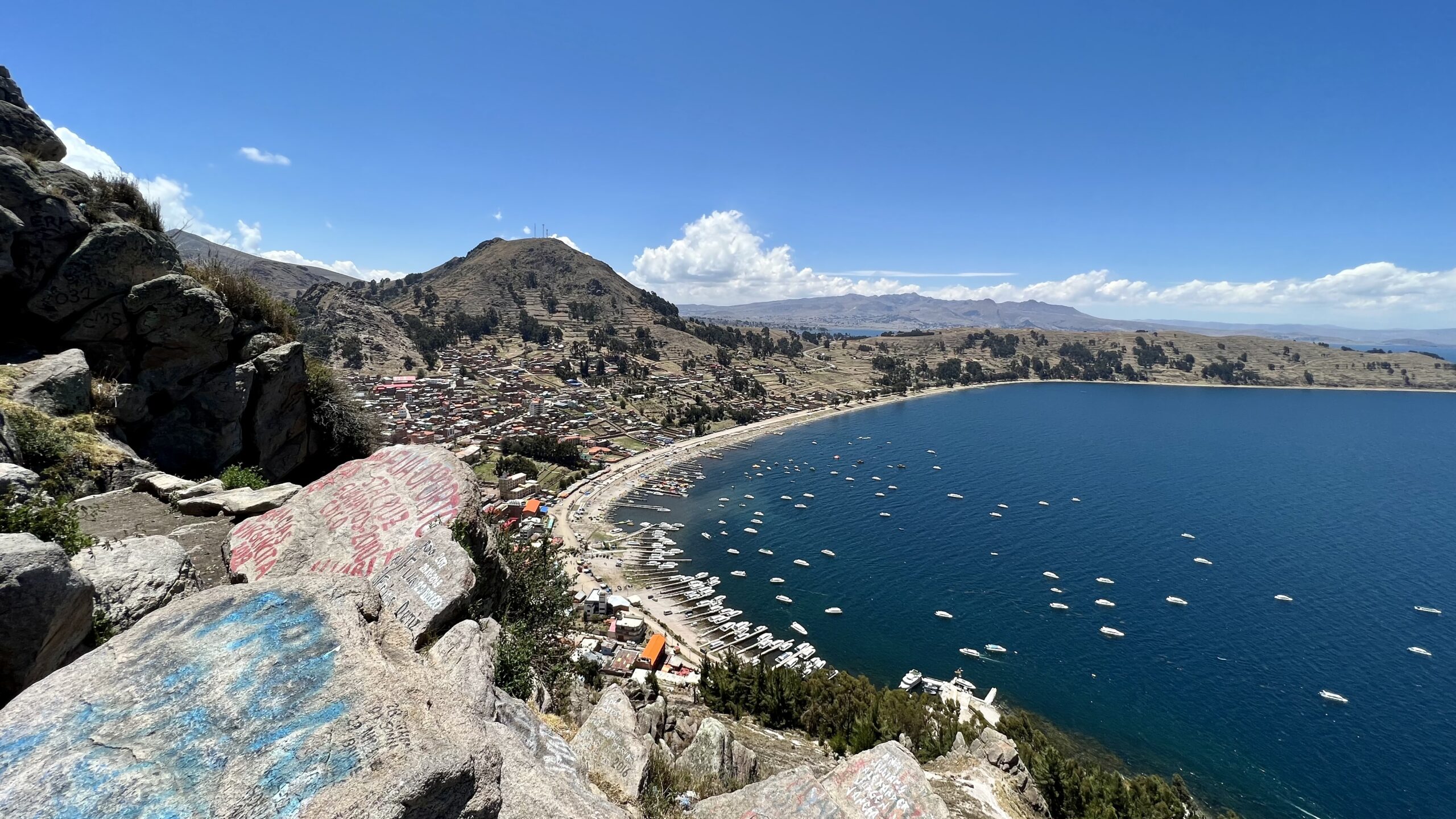Leaving La Paz was a nightmare of traffic – 10km in about one and a half hour – just to get out of the main city area. And then came 4-5 police controls on route to first Tiwanaku (old inca-style ruins) and then onto Copacabana.
Now a note on getting fuel as a tourist – you cannot just drive in to a petrol station and ask the guy to fill up your tank – he will state no fuel or just no and pointing to the CCTV. So, apparently the rule is something like that’s not allowed, but if you park your bike next to the filling station, take your 4l jerrycan walk to the guy – then he will fill it – and that a number of times, so you go back to your bike empty the can and walk back for the next one ? The reason is major subsidiary of fuel to the local population – so all foreigners must in principle pay the real price (just around 1.2 euro per litre).
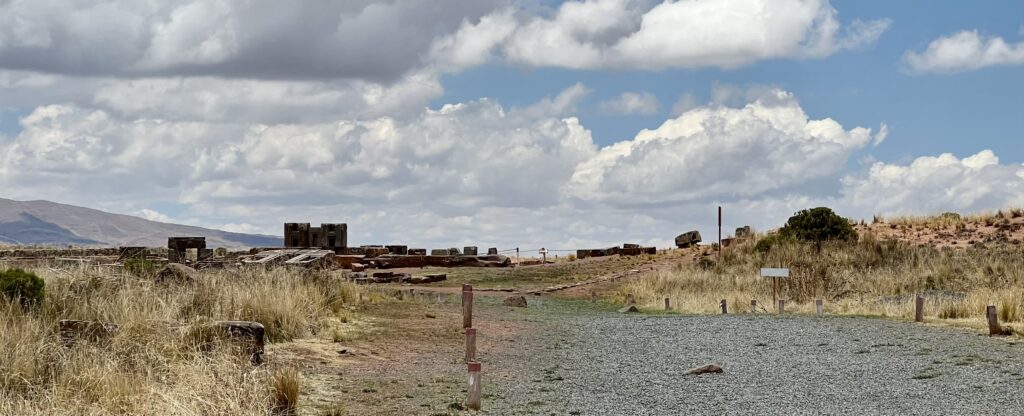
Tiwanaku was unfortunately closed, but were able to get a single image from outside the fence, so more pictures must be borrowed from the internet – it would have been nice we view this in person.
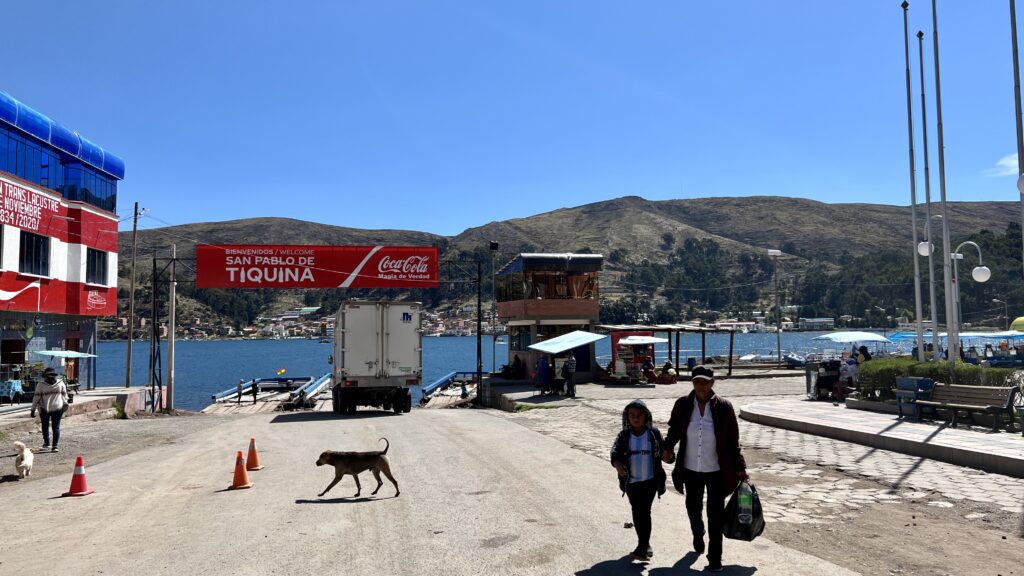
Arriving on the peninsula where Copacabana is, you have to take a “ferry” from Tiquina – it’s simply a barge with big planks of wood to put your wheels – and then openings straight to the hull. The barge was driven by a simple out-board engine and slowly took me to the other shore.
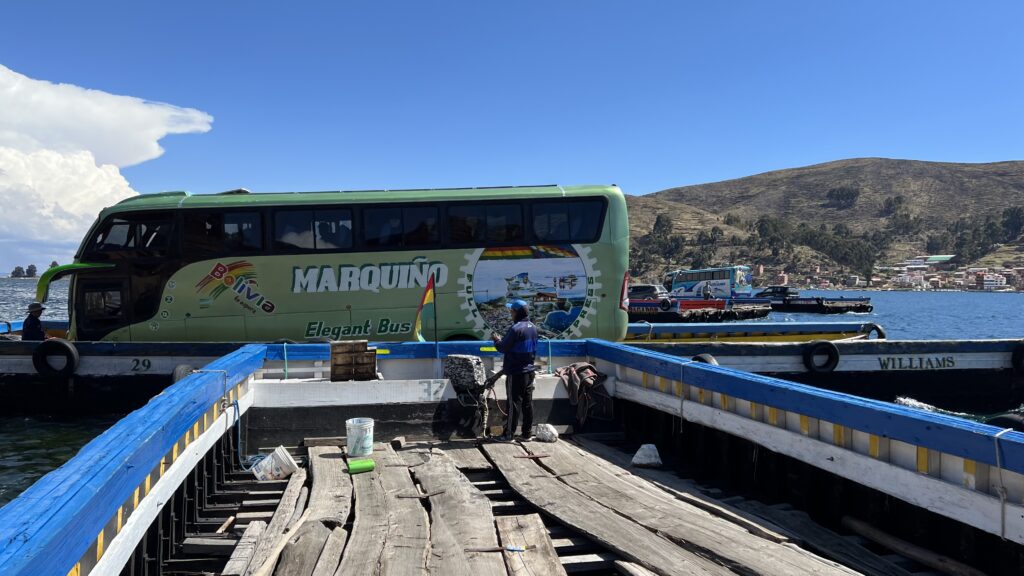
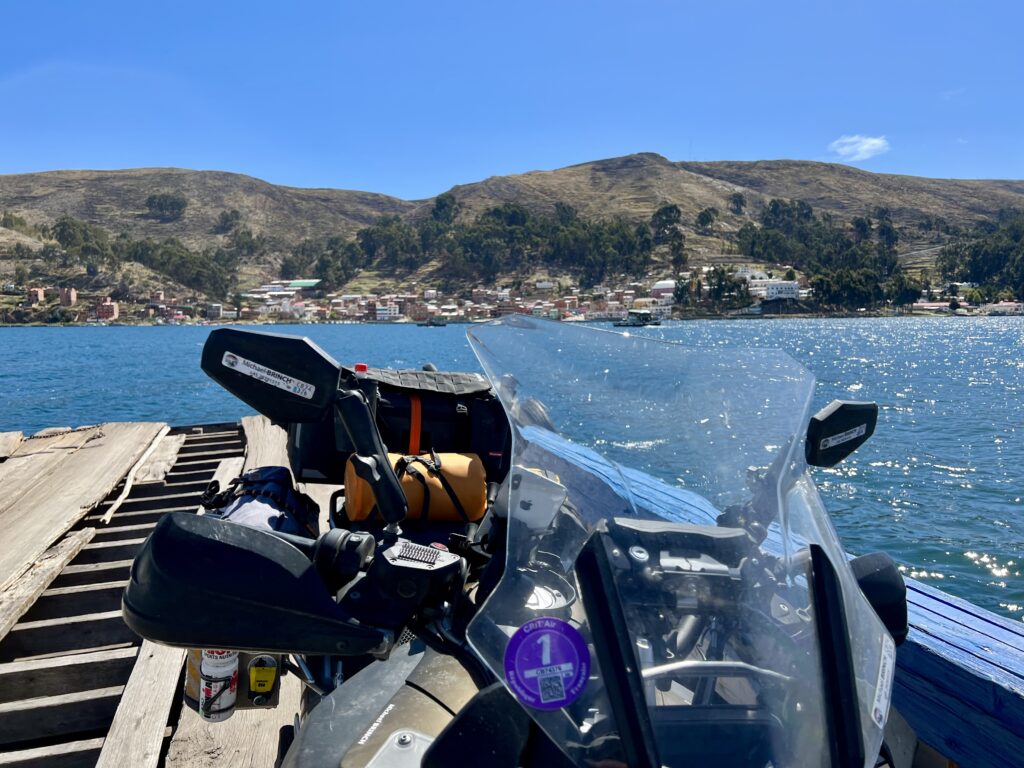
Driving from the ferry point to Copacabana was in mountainlike roads and the hills was layered with man-made terrasses over many generations. I guess the terrasses was used to secure the stock of sheep from falling to the into the deep – it was impressive to see it all covered like this.
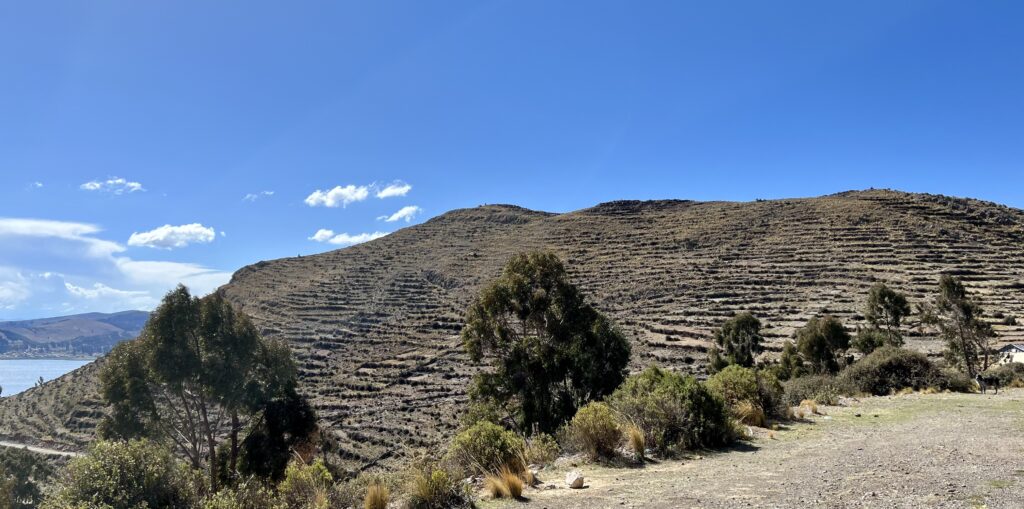
Copacabana is placed on a peninsula reaching out into the Titicaca Lake – the worlds largest and highest freshwater lake. It is separating Bolivia from Peru – so when I watch the sunset it’s over Peru territory.
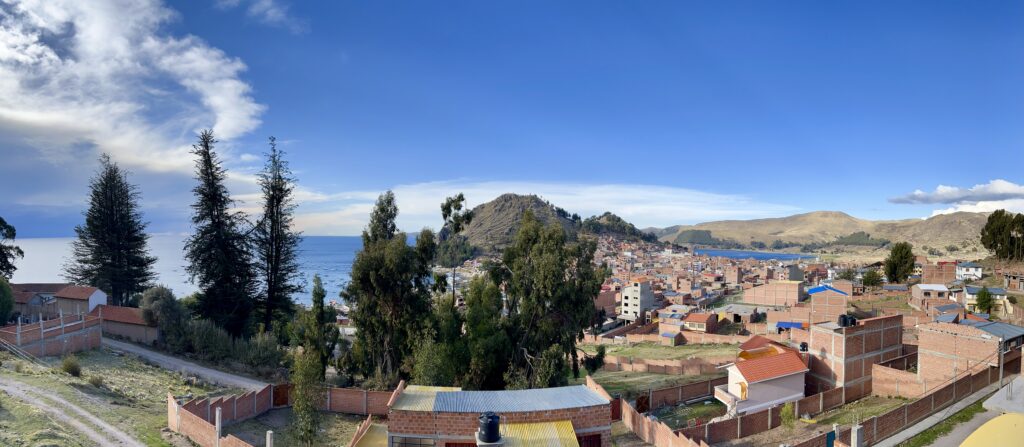
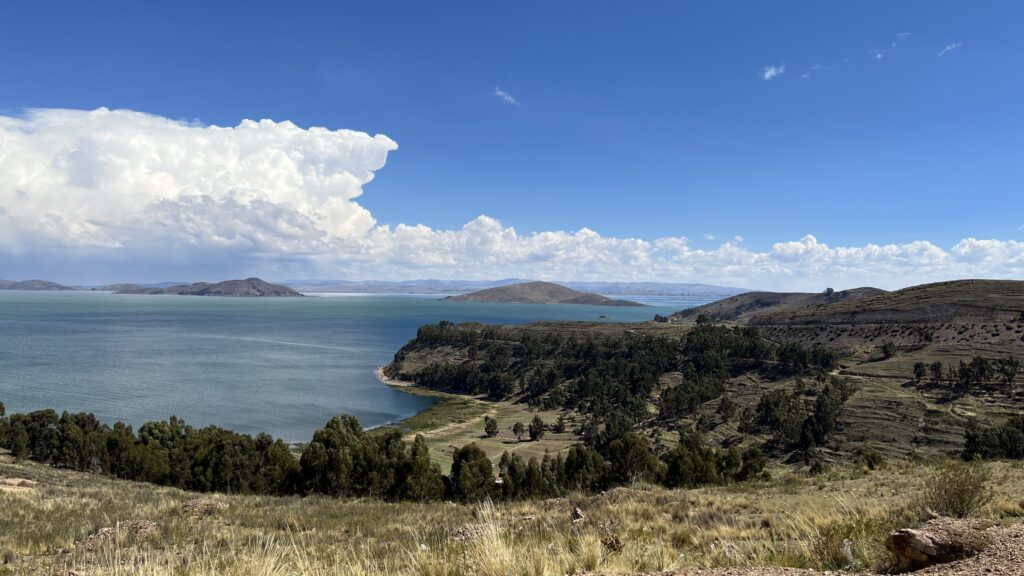
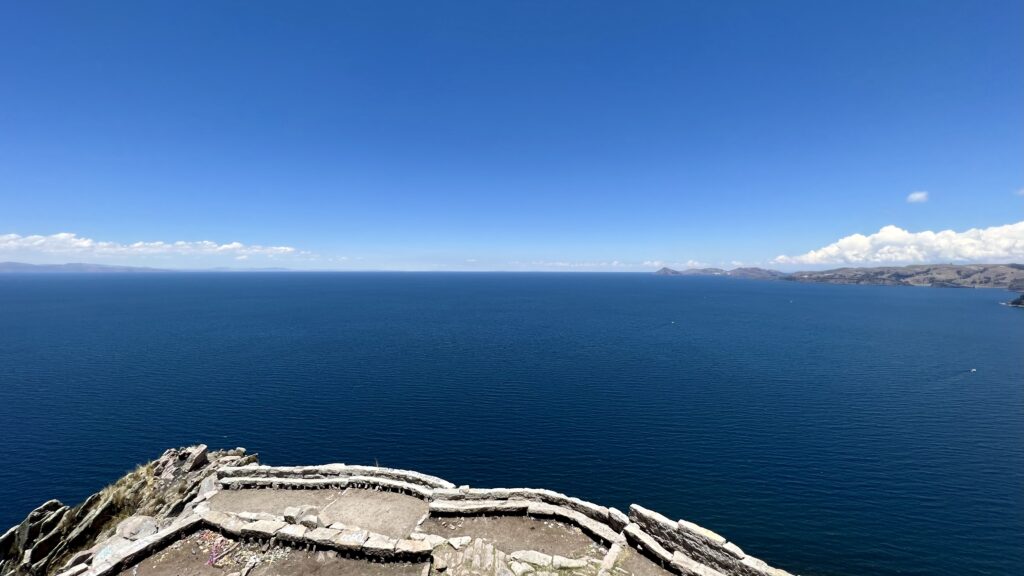
Another safe parking was provided – booking.com really need to follow up on this.
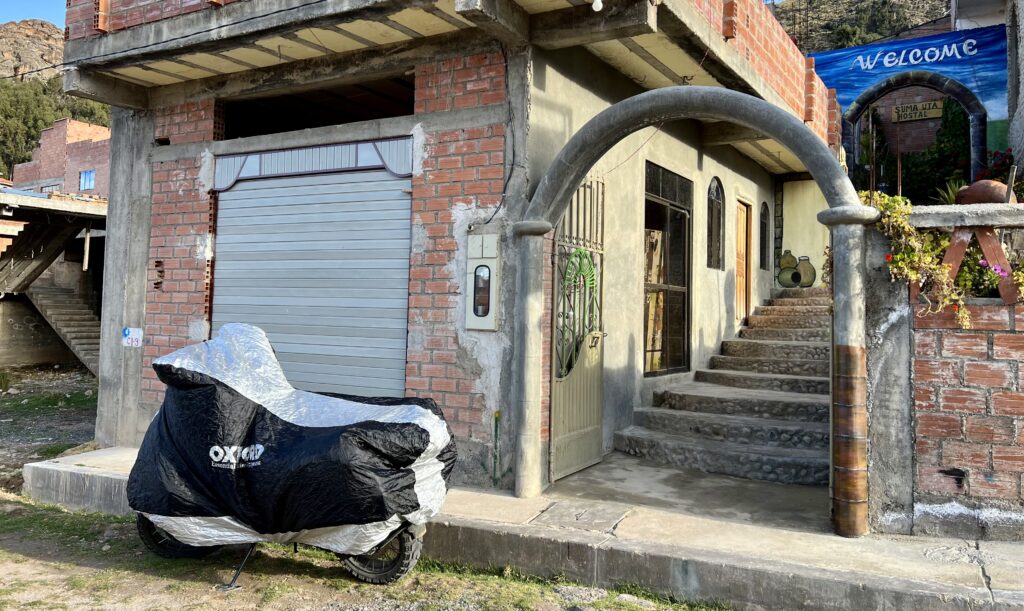
Being a tourist one need to adapt – so I checked out of the hostel and moved downtown now knowing a bit more of which hostels can provide what – in reality. So the next two days was at the Hostal Sonia with real secure parking.
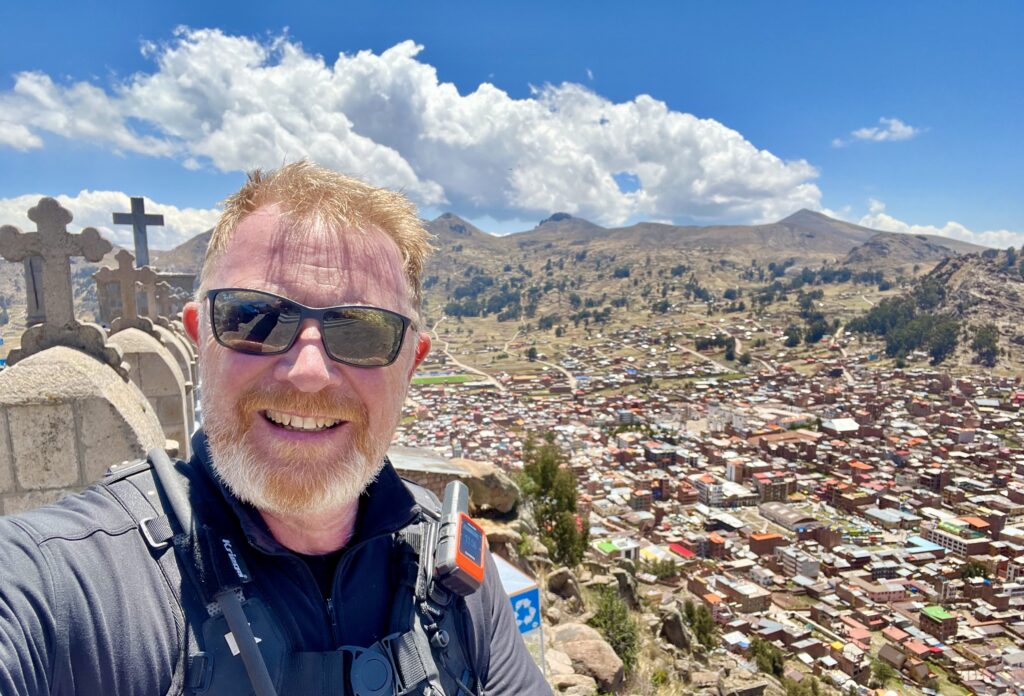
Second day of the stay in Copacabana was to be a tourist – so a long and rewarding trek to the sanctuary at the peak point of the city – the Cerro Calvario. It was uphill stretching lungs and muscles to the limit again – but the views from the peak was worth it. Also a bit of more walking of the city to get the sense of how a Bolivian small city works. Enjoy the images.
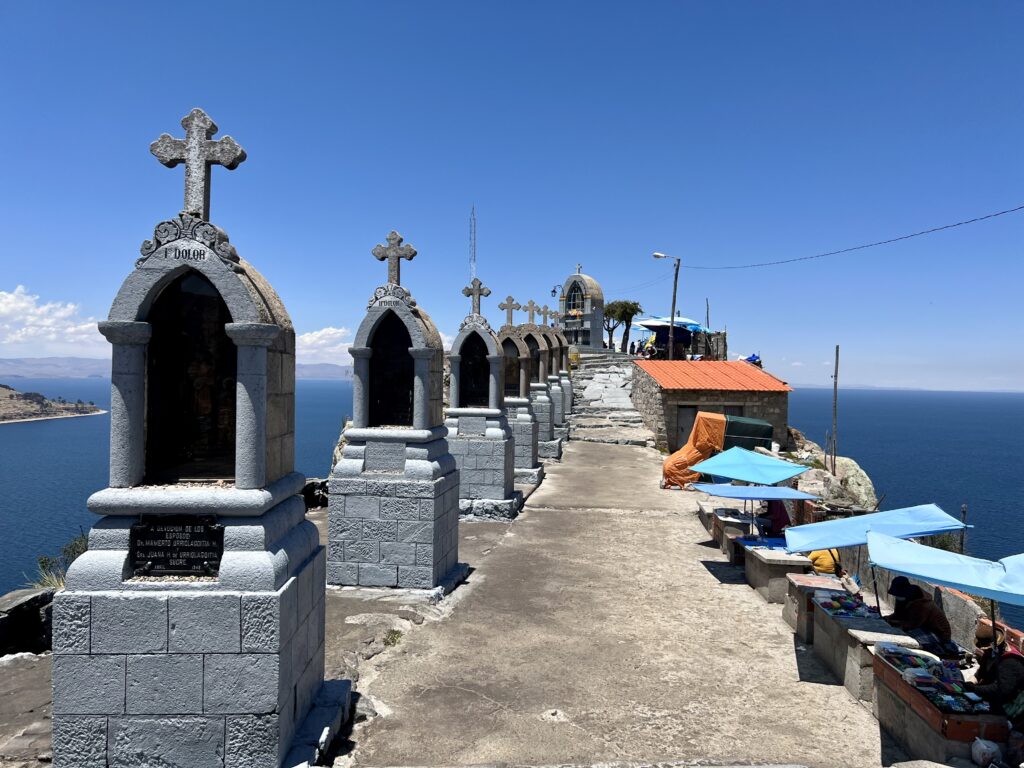
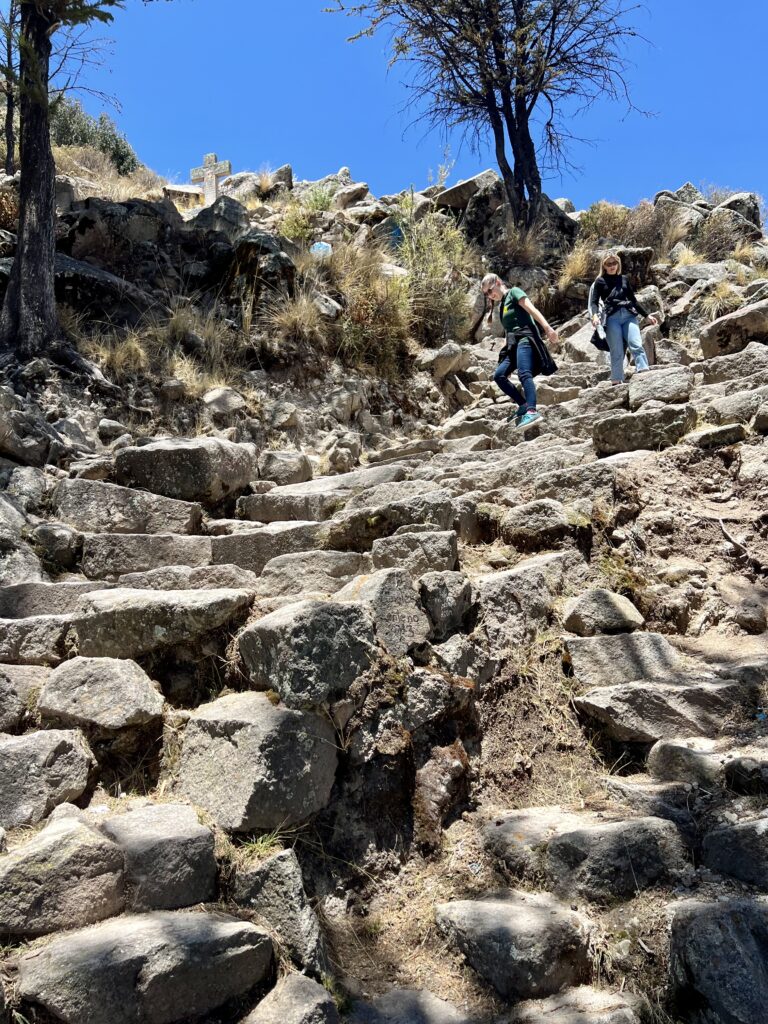
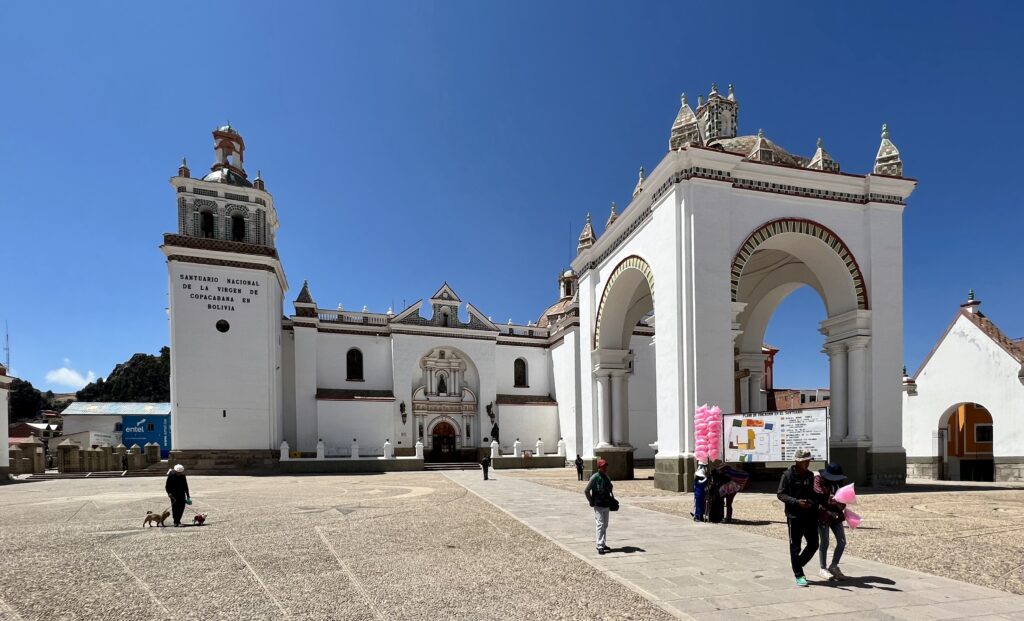
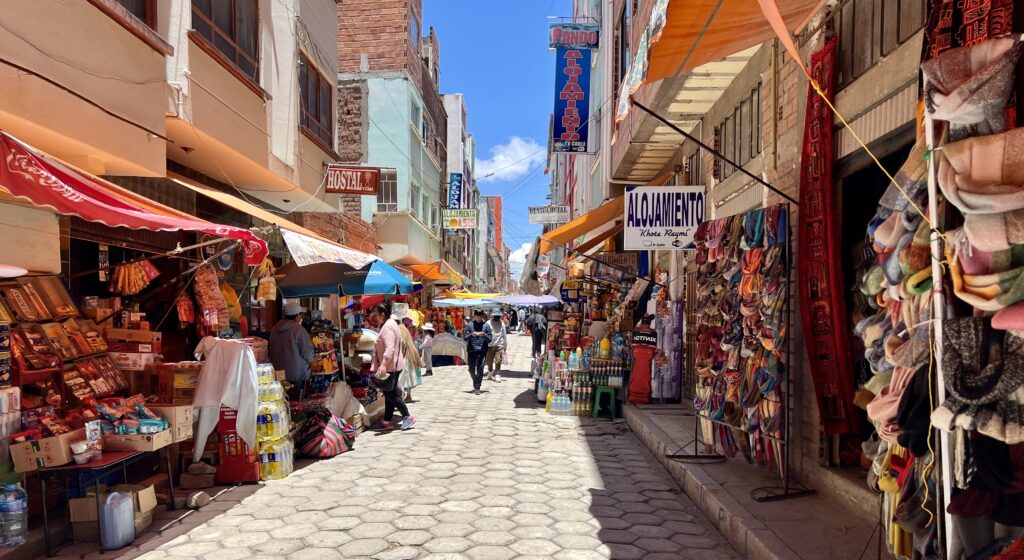
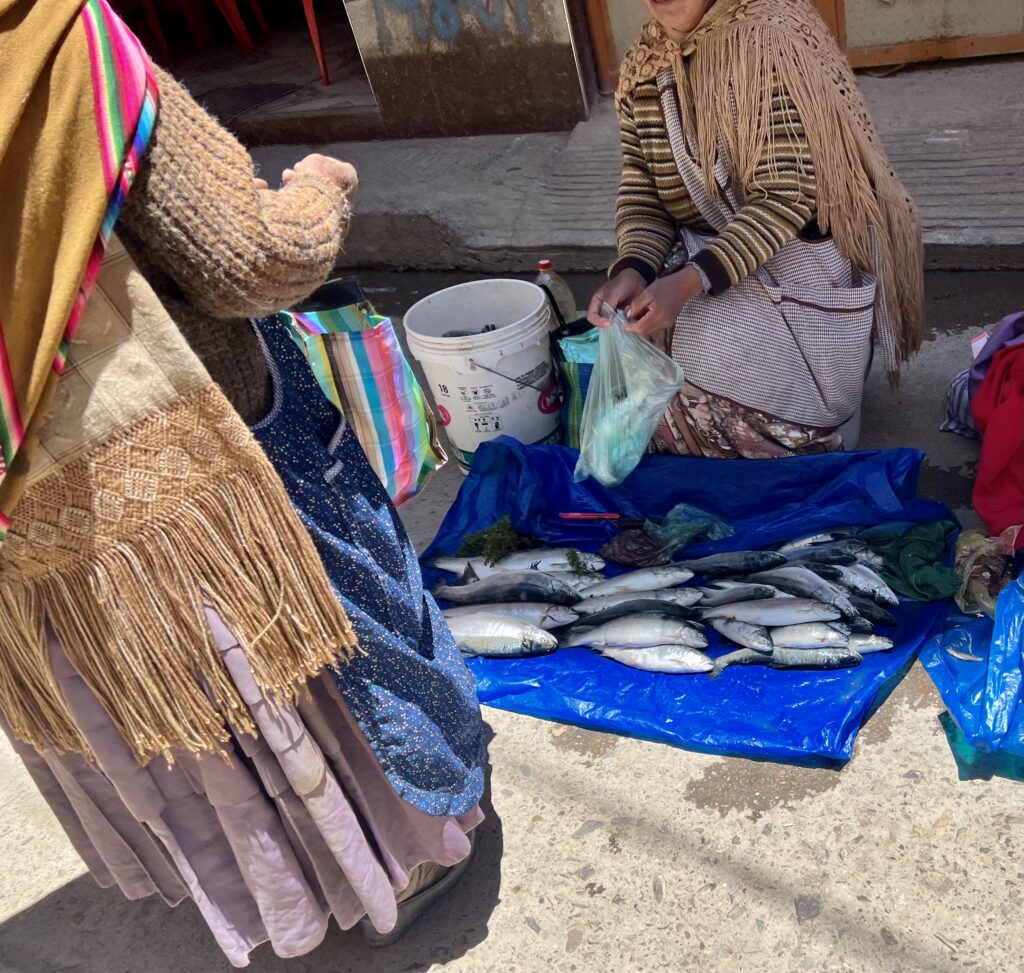
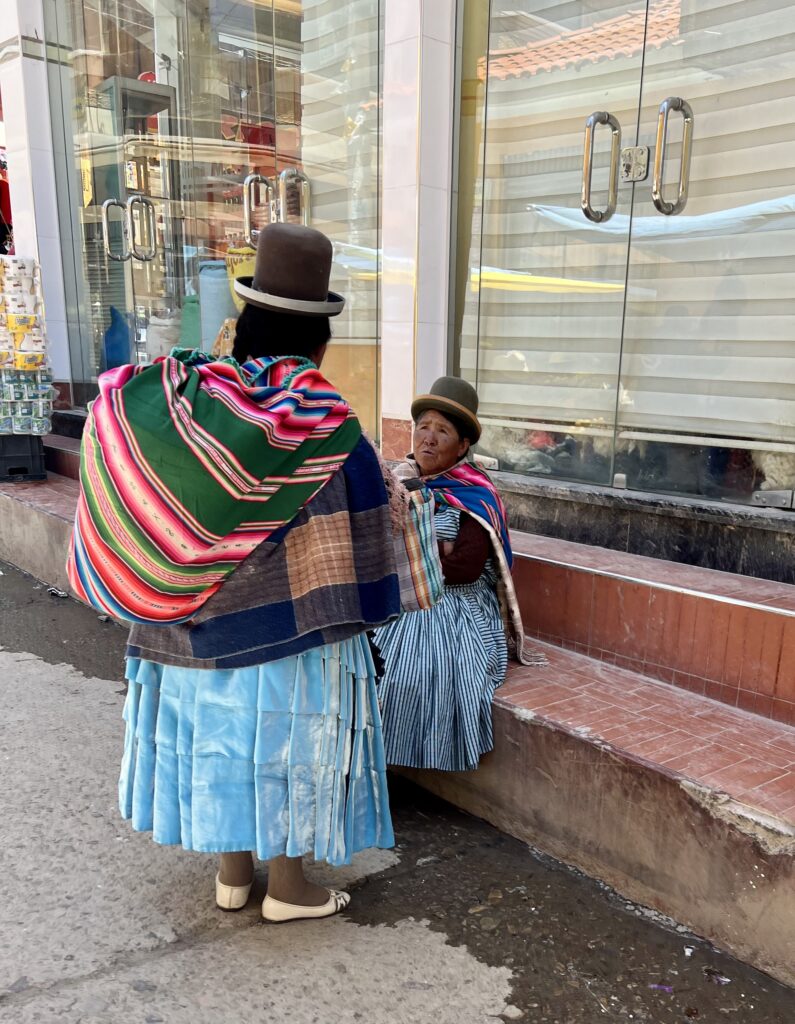
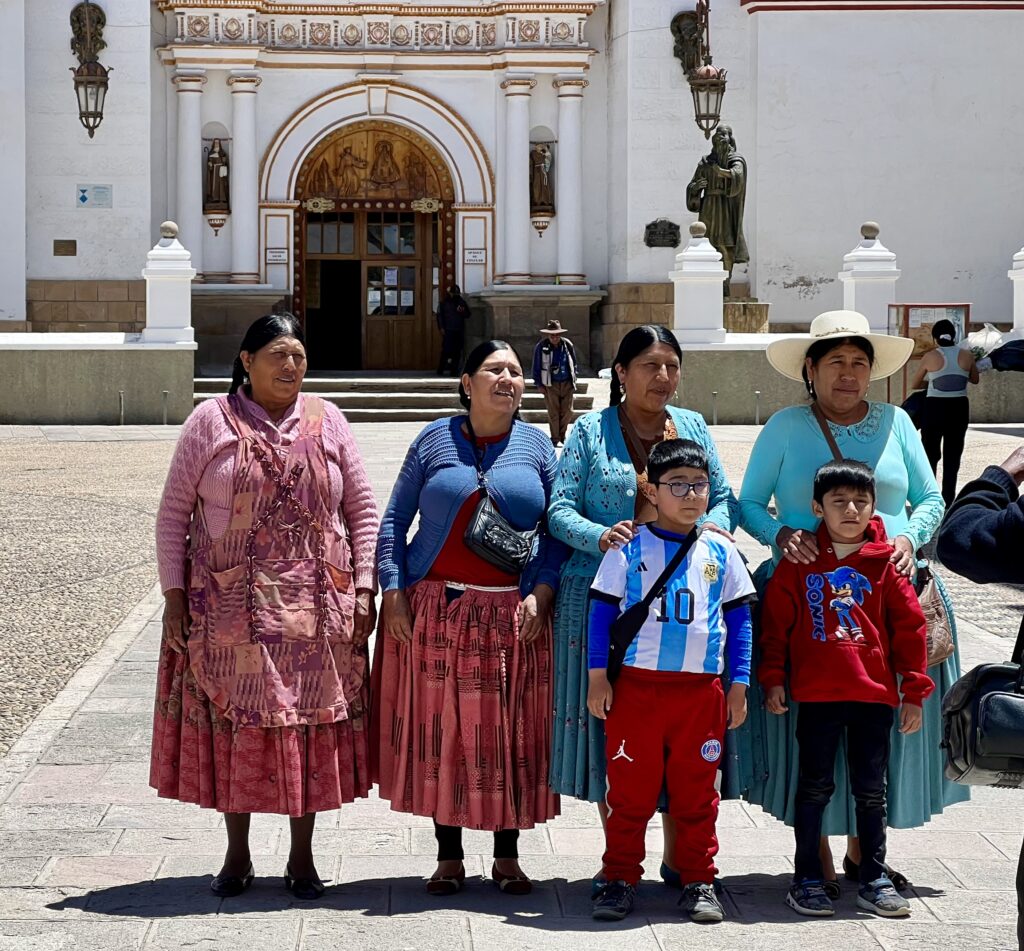
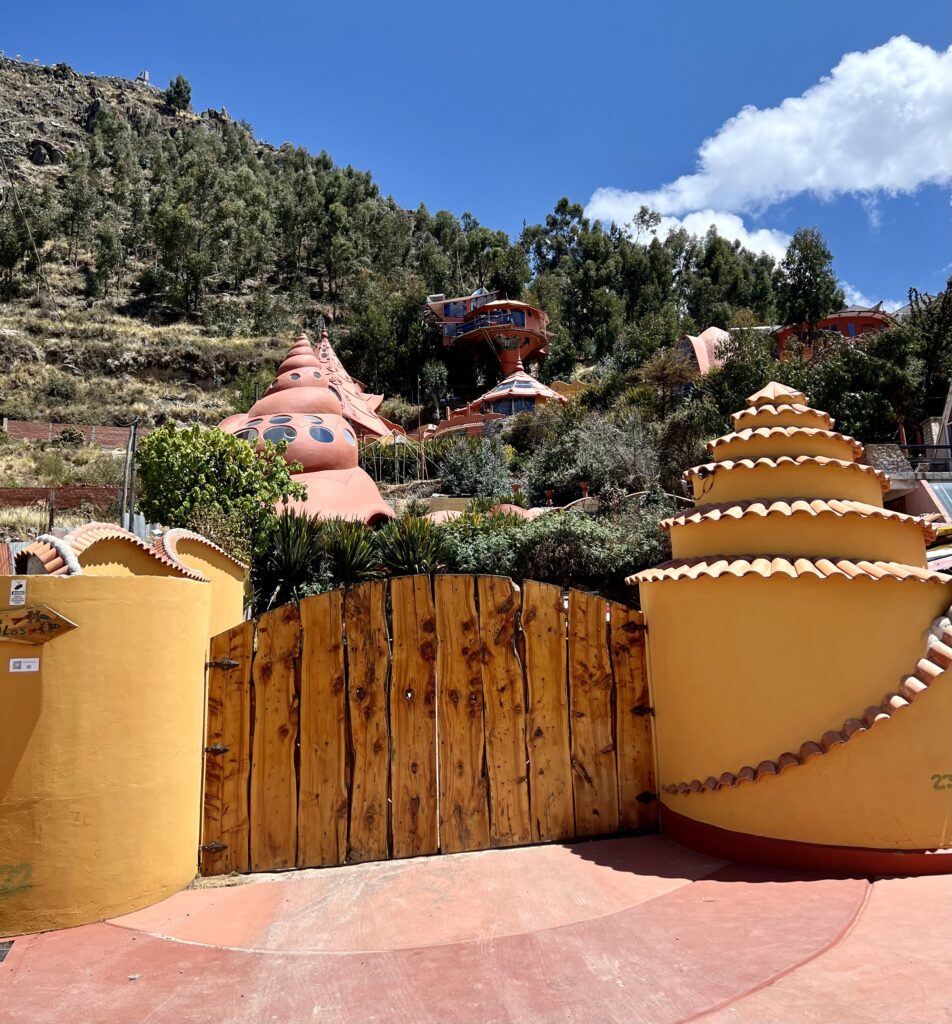
Now having X-mas alone far away from your loved ones is difficult – first you are kind of not in a Christmas spirit here and then timezones and activities as tourist needs to align somehow. I booked a boat trip to two islands in the Titicaca Lake for the 24th December – Isla la Luna and Isla la Sol. And of course this happened right when the family was sitting with dinner and presents at home.
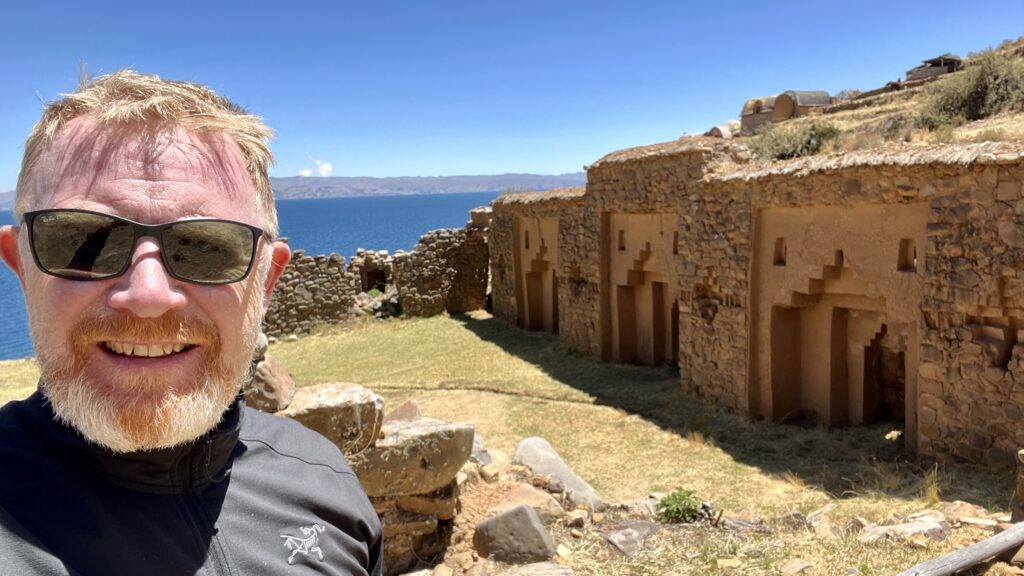
There is a lot of Inca related history behind the Isla del Sol. According to Incan legend the principal God, Inti (the Sun God), lived on one of the islands on the Bolivian side of the lake, the Isla Del Sol. Legend goes that the island is where Inti created his son and daughter, Manco Capac and Mama Ocllo, the very first Incas who later travelled north to find Cusco at the heart of what would become the Inca Empire! So history begun right here.
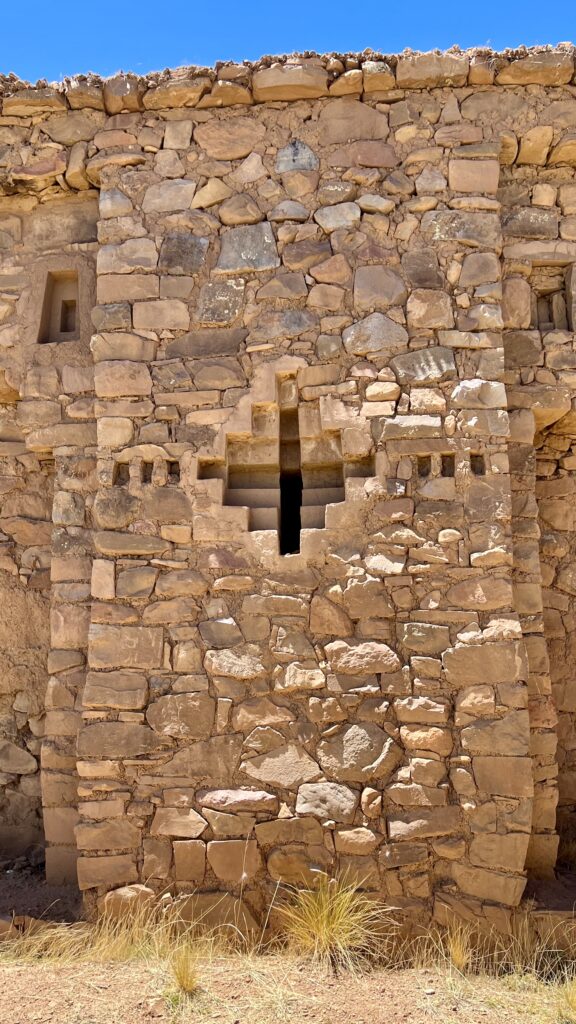
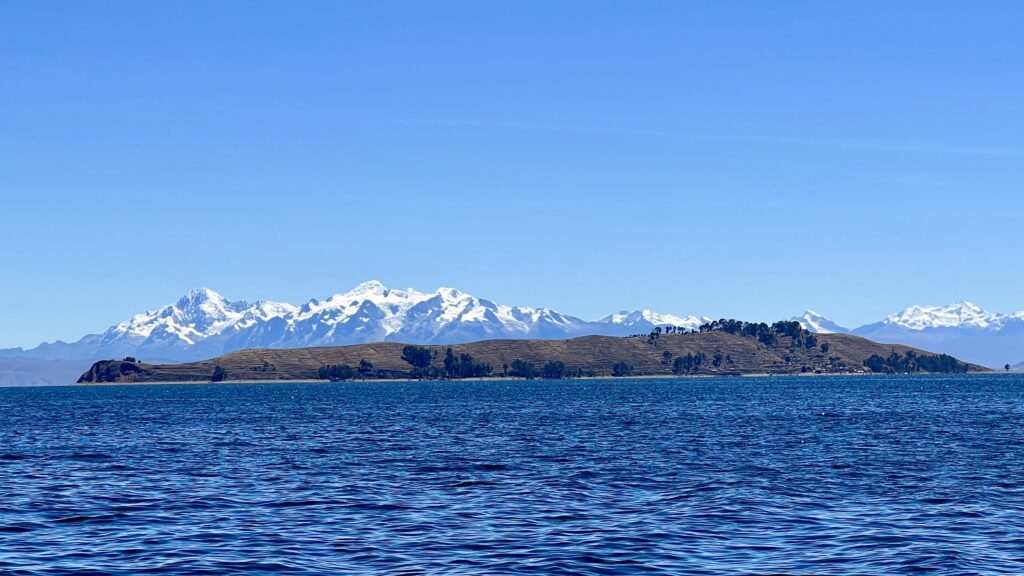
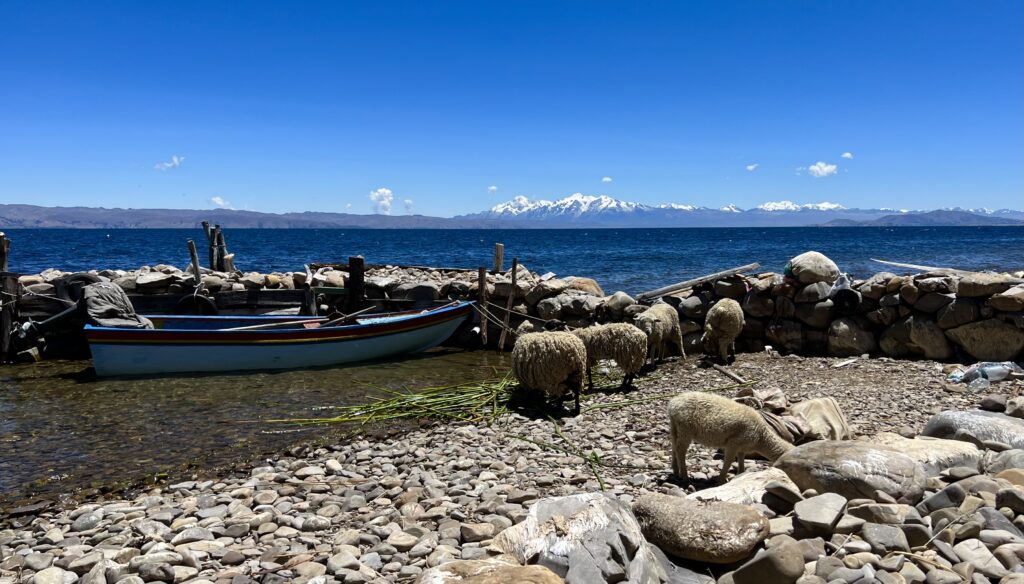
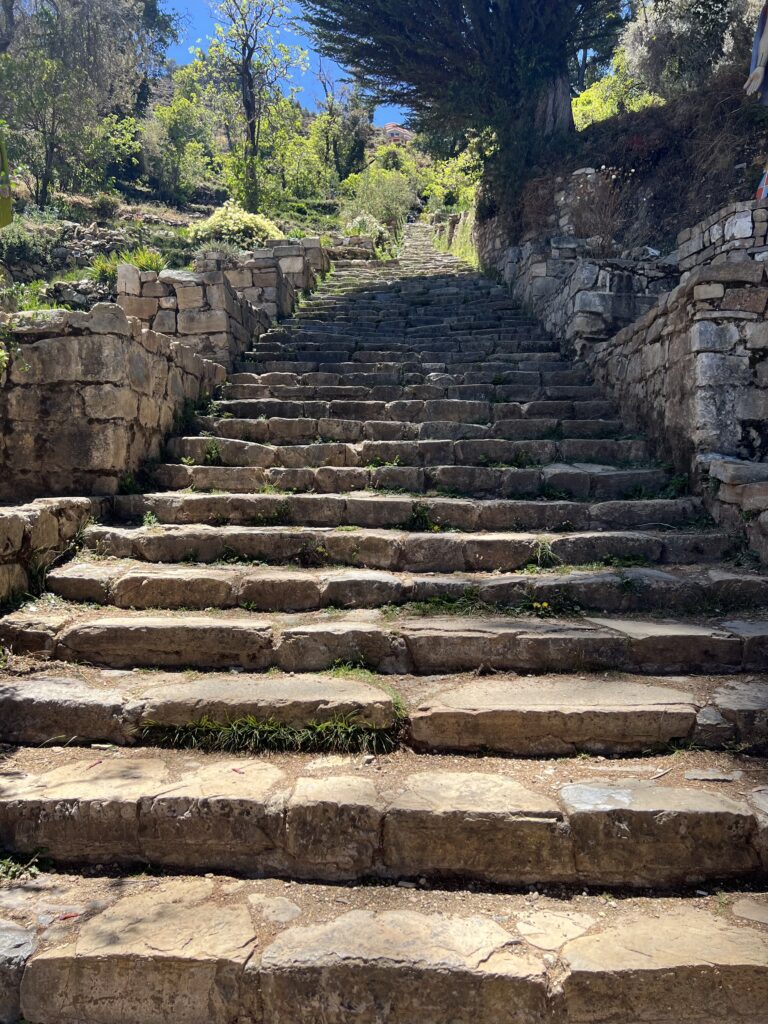
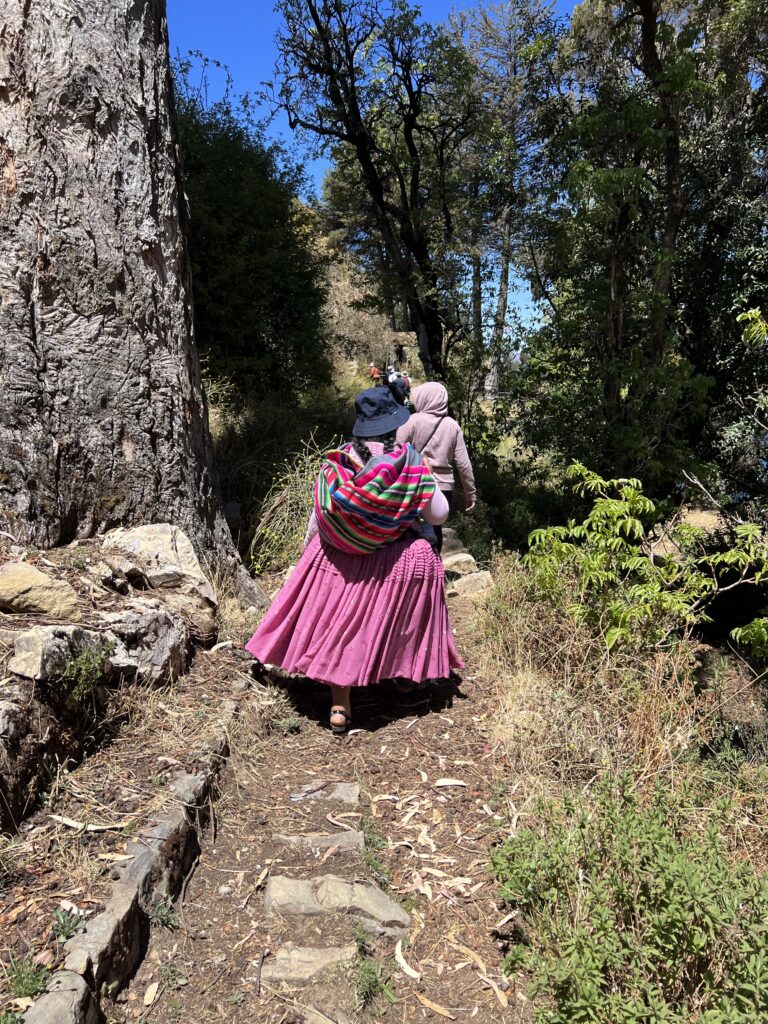
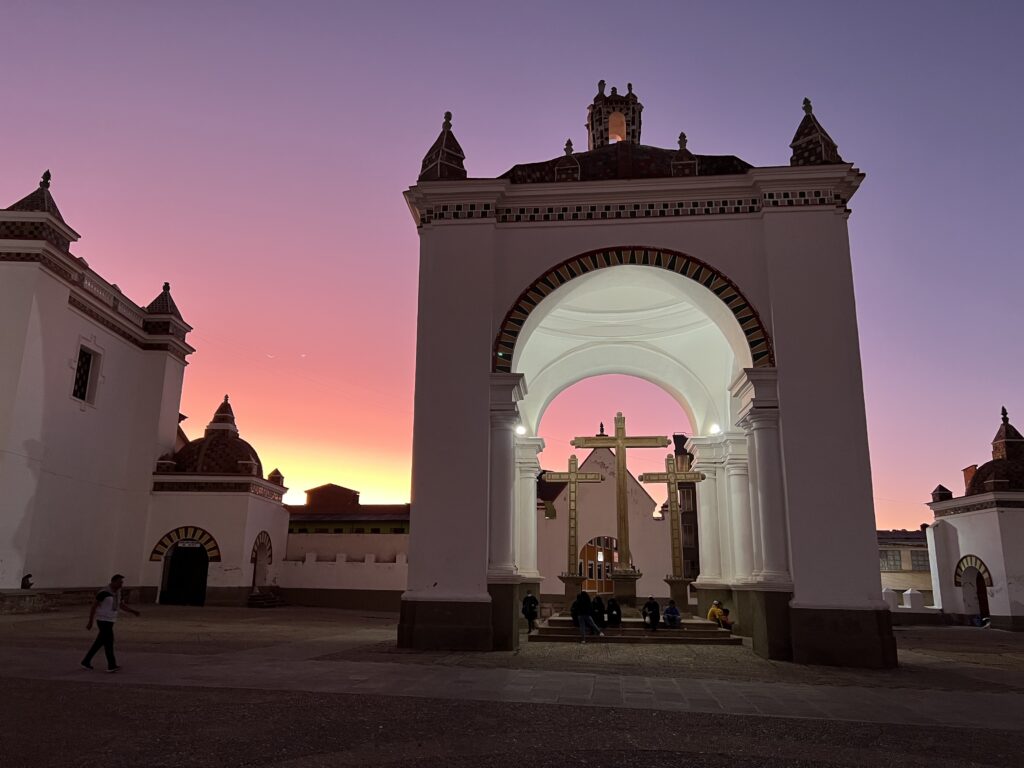
And before leaving the 24th of December I of course had to keep the tradition and view the (very limited clip from YouTube) of the Disney Christmas Show.
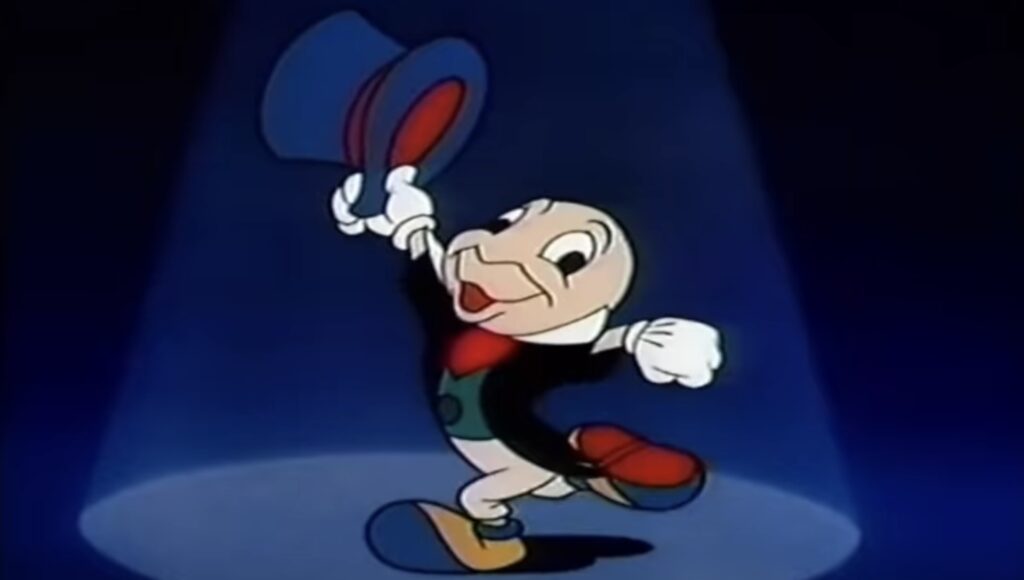
I wish you all a Merry Christmas ❤️🙏🏻

